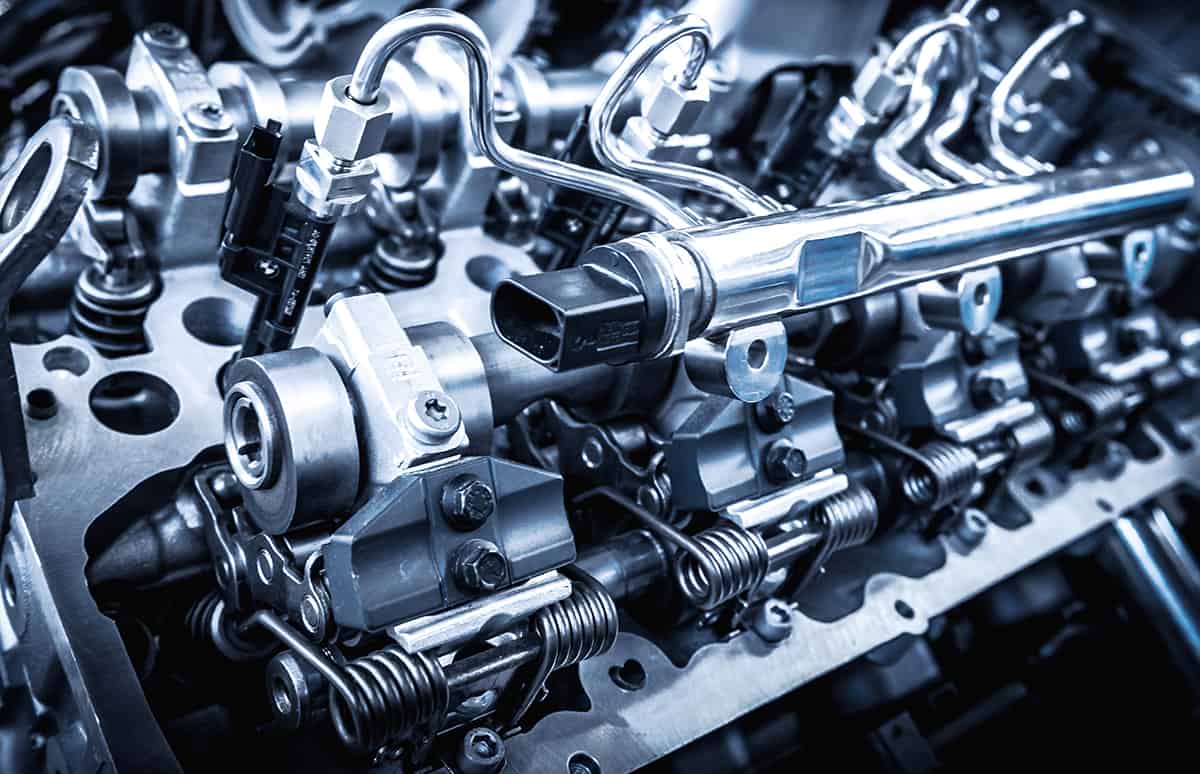When you’re driving on the highway, there’s no denying the presence of these enormous vehicles. But have you ever wondered about their horsepower and what keeps these giants moving?
The average horsepower of a semi truck falls in the 400 to 600-HP range. Semi trucks’ horsepower varies from model to model, though we can usually categorize their horsepower ratings by 300-400, 400-500, 500-600, and over 600.
In this post, we will explore the world of semi truck horsepower and what factors contribute to the wide range of horsepower found in these vehicles.
What Is Horsepower?

Before we dive into the specifics of semi trucks, let’s take a moment to understand horsepower.
Horsepower is a unit of measurement used to describe the power of an engine. It was invented by James Watt in the late 18th century as a way to compare the output of steam engines to the power of horses. Today, we use horsepower to measure the power output of various types of engines, including those found in semi-trucks.
Factors Affecting Semi-Truck Horsepower
There is no one-size-fits-all answer when it comes to the horsepower of semi trucks. Several factors contribute to the wide range of horsepower found in these vehicles, including the truck’s make and model, engine size, and intended use. Let’s look at these factors in more detail.
1. Make and Model
The make and model of a semi truck play a significant role in determining its horsepower. Different manufacturers produce trucks with varying levels of horsepower to cater to the specific needs of their customers.
For example, some semi trucks are designed for long-haul transportation and require more horsepower to maintain consistent speeds over long distances, while others are built for local deliveries and can function with less horsepower.
2. Engine Size
The size of the engine in a semi truck is another critical factor in determining its horsepower. Generally speaking, larger engines produce more horsepower than smaller engines. Semi truck engines typically range in size from 9 to 16 liters, with the larger engines producing more power.
3. Intended Use
As mentioned earlier, the intended use of a semi truck also influences its horsepower. Trucks designed for long-haul transportation typically have more horsepower than those intended for local deliveries or regional transportation. This is because long-haul trucks must maintain consistent speeds over long distances and often carry heavier loads, requiring more power from the engine.
Horsepower Range for Semi Trucks

Now that we understand the factors that contribute to semi truck horsepower let’s discuss the typical horsepower range for these vehicles. Semi trucks can have anywhere from 300 to over 600 horsepower, with the typical range being 400 to 600, depending on the factors discussed above.
300-400 Horsepower
Semi trucks with horsepower in this range are often designed for local deliveries and regional transportation. These trucks may have smaller engines and are typically more fuel-efficient than their high-horsepower counterparts.
400-500 Horsepower
Trucks in this horsepower range are suitable for both regional transportation and long-haul trips. They offer a good balance between power and fuel efficiency, making them popular choices for many trucking companies.
500-600 Horsepower
Semi trucks with horsepower in this range are often designed for long-haul transportation and heavy loads. These trucks have large engines and are built to maintain consistent speeds over long distances, even when hauling heavy cargo.
600+ Horsepower
Semi trucks boasting over 600 horsepower are truly the powerhouses of the industry. These behemoths are designed for the most demanding jobs, such as carrying extremely heavy loads or tackling steep inclines. These high-horsepower trucks are often equipped with the largest engines available and provide unmatched power to tackle the toughest challenges on the road.
Why Horsepower Matters in Semi Trucks
Understanding the horsepower of a semi truck is essential, as it directly impacts the truck’s performance, fuel efficiency, and overall capabilities. Here’s why it matters:
1. Performance
Higher horsepower translates to better performance on the road, especially when climbing hills or maintaining a consistent speed with a heavy load. The increased power allows the truck to navigate challenging terrain more easily and maintain a steady pace, even under demanding conditions.
2. Fuel Efficiency
Horsepower also plays a role in fuel efficiency. While it may seem counterintuitive, higher horsepower trucks can sometimes be more fuel-efficient than their lower horsepower counterparts. This is because higher horsepower engines can maintain their speed with less effort, reducing the need to constantly accelerate and decelerate, which can save fuel in the long run.
3. Load capacity
The horsepower of a semi truck directly impacts the amount of weight it can carry. Trucks with higher horsepower are capable of pulling heavier loads, making them ideal for long-haul transportation or specialized applications that require the transportation of heavy cargo.
FAQs
1. How is the horsepower of a semi truck calculated?
Horsepower is calculated using a dynamometer, a device that measures the power output of an engine. The dynamometer measures the force produced by the engine and converts it to horsepower using a specific formula. The exact method of calculating horsepower can vary depending on the type of engine and the dynamometer used.
2. Can the horsepower of a semi truck be increased?
Yes, the horsepower of a semi truck can be increased through various modifications and upgrades, such as installing a new engine, reprogramming the engine control module (ECM), or adding aftermarket performance parts. However, increasing horsepower can sometimes affect fuel efficiency, emissions, and vehicle warranty, so it’s essential to consider these factors before making any modifications.
3. How does torque relate to horsepower in semi trucks?
Torque is a measure of the twisting force produced by an engine, and it plays a crucial role in a semi truck’s performance. Horsepower and torque are related, as horsepower is a function of torque and engine speed (RPM). In general, a semi truck with higher torque will have better acceleration and pulling power, which is especially important when carrying heavy loads or tackling steep inclines.
4. What is the average fuel efficiency for semi trucks with different horsepower ratings?
Fuel efficiency varies significantly among semi trucks based on factors like engine size, horsepower, load weight, driving conditions, and driver behavior. The rough estimate for semi trucks on average is about 6.5 miles per gallon.
In general, semi trucks with lower horsepower ratings tend to be more fuel-efficient, while those with higher horsepower may offer better performance but consume more fuel.






